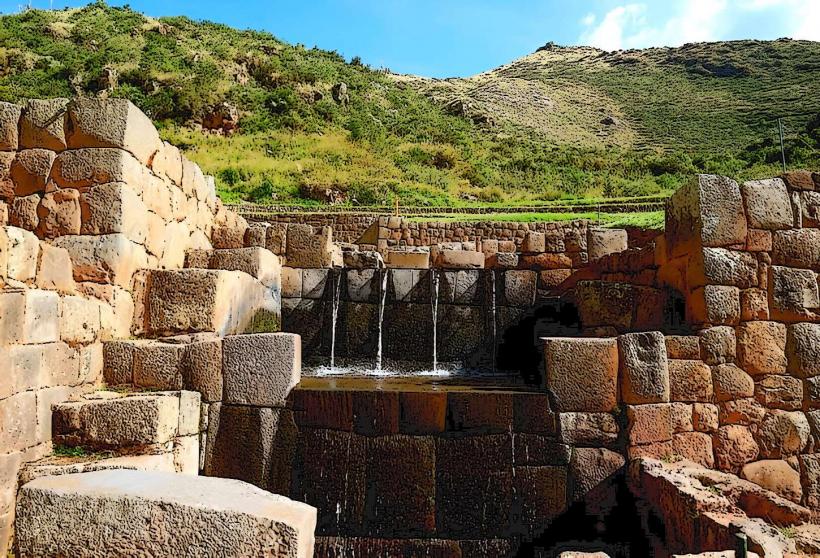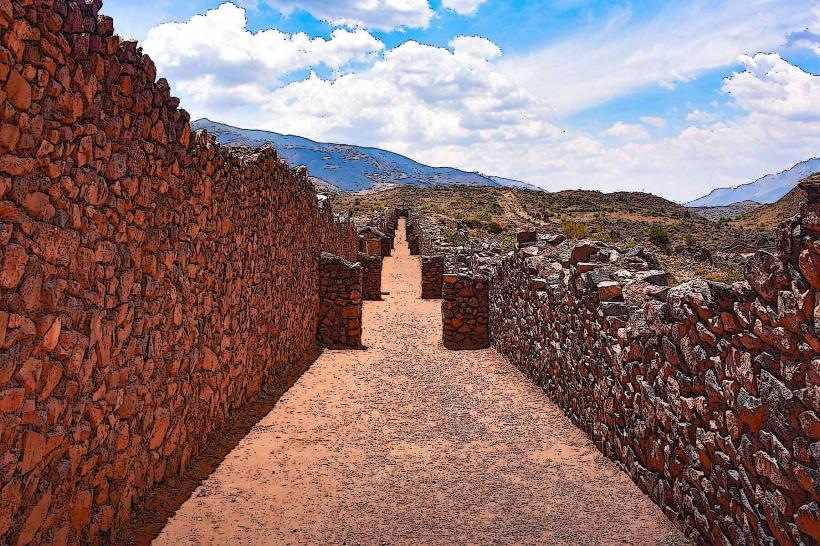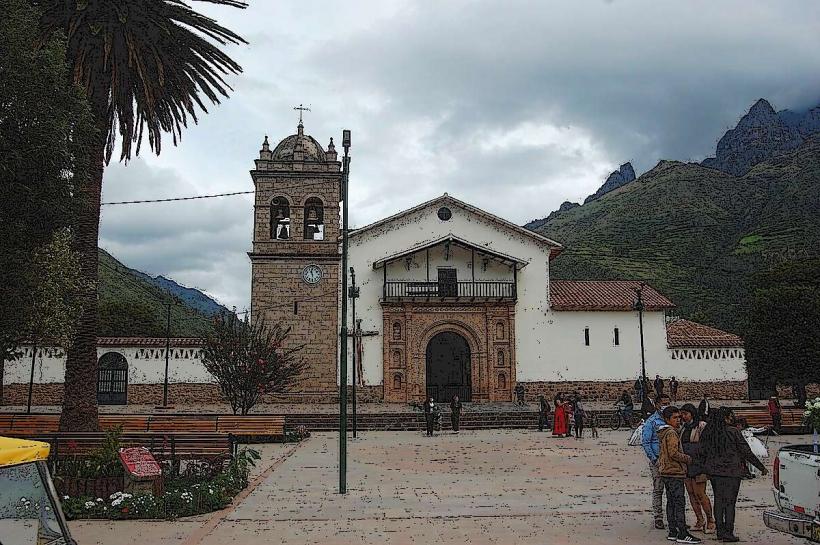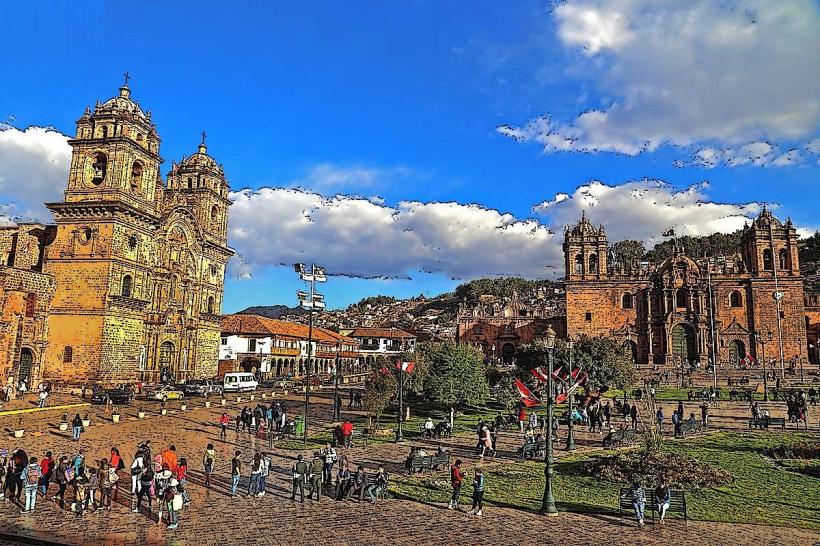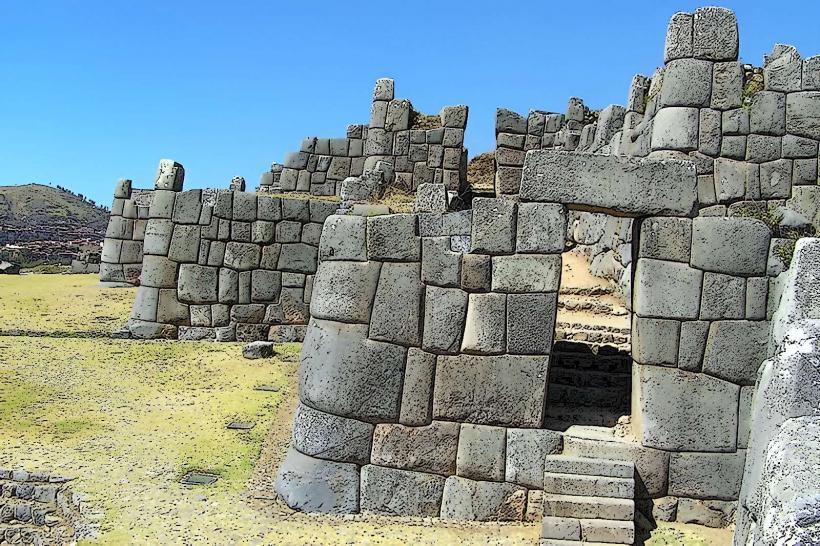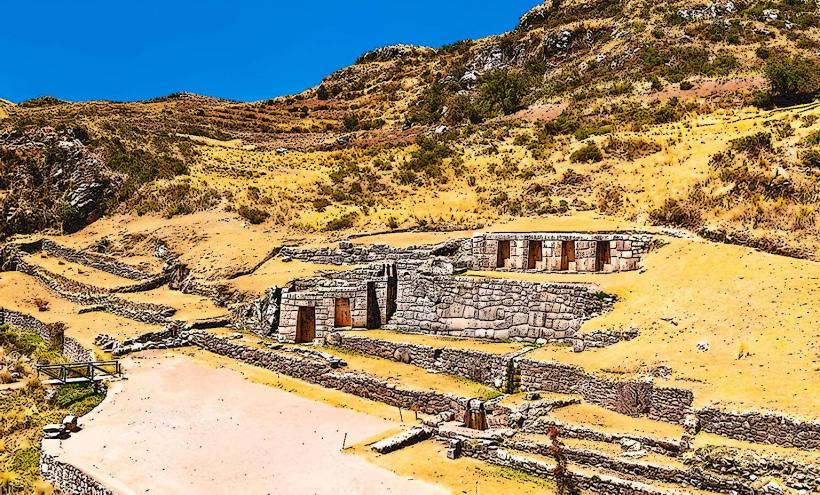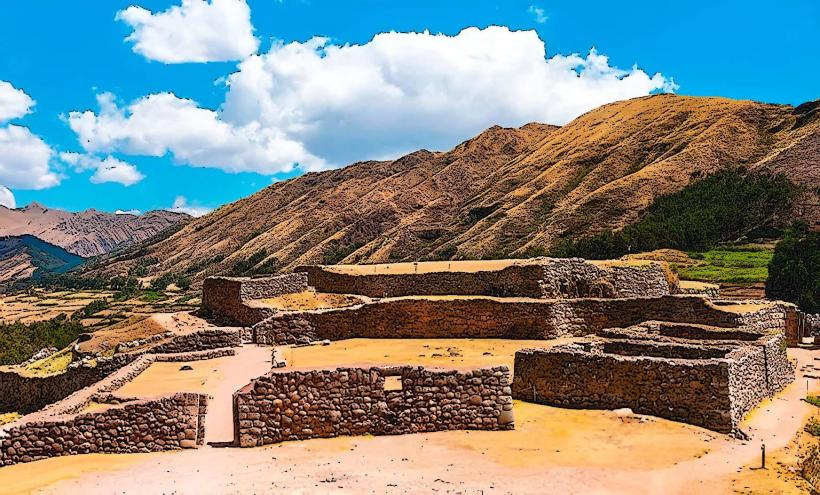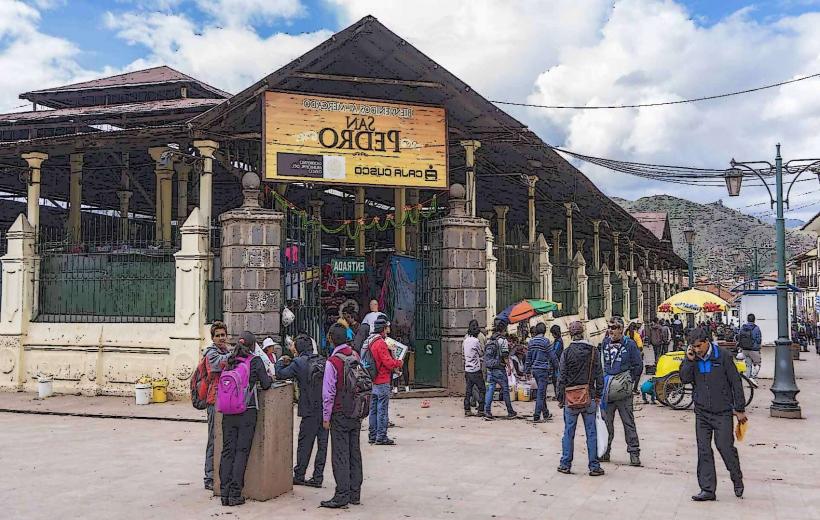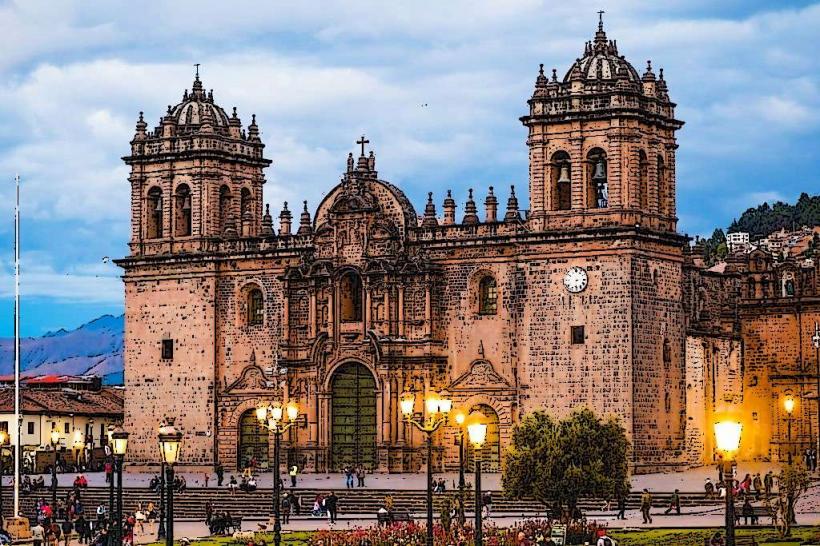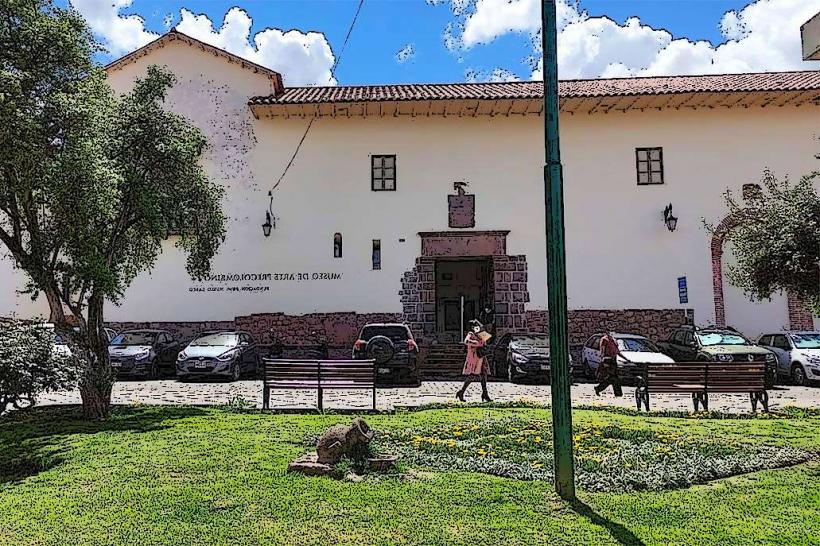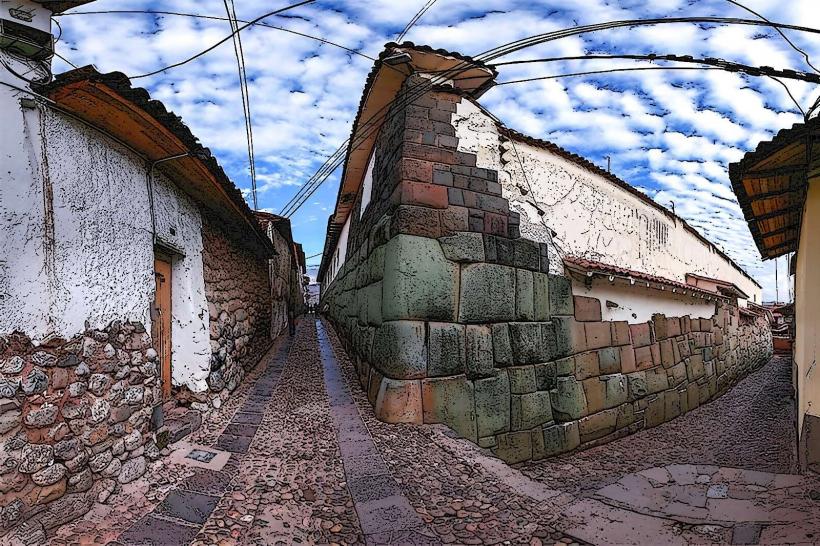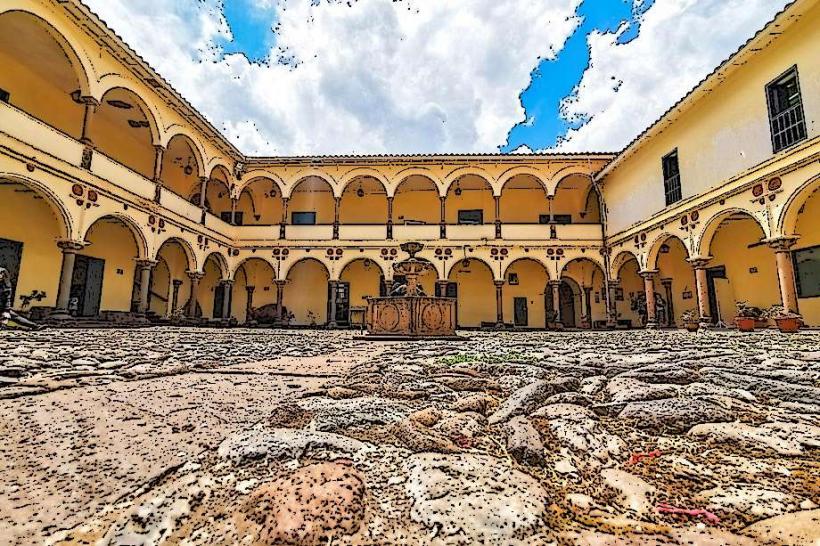Information
Landmark: Qorikancha (Temple of the Sun)City: Cusco
Country: Peru
Continent: South America
Qorikancha (Temple of the Sun), Cusco, Peru, South America
Qorikancha (also known as the Temple of the Sun) is one of the most significant and revered Inca archaeological sites, located in the city of Cusco, Peru. The name Qorikancha comes from the Quechua word "qori" meaning gold and "kancha" meaning enclosure or court, which translates to "Golden Temple" or "Temple of the Sun". The site was the most important temple in the Inca Empire, dedicated to Inti, the Sun God, who was considered the ancestor and divine protector of the Inca royal family.
1. Historical and Religious Significance
- Inca Religion: Qorikancha was the most sacred temple in the Inca Empire, and it played a crucial role in the religious and cultural practices of the Incas. It was primarily dedicated to the worship of Inti, the Sun God, and it served as the center of religious ceremonies and offerings.
- Royal Influence: The temple was closely tied to the Inca emperors (Sapa Inca), who were believed to be the direct descendants of Inti. The site was also home to numerous priests and priests' assistants who performed rituals and sacrifices to ensure the favor of the gods.
- Gold and Riches: Qorikancha was renowned for its wealth, especially its golden decorations. The temple was filled with golden plates, golden idols, and gold-covered walls. The Incas were highly skilled at working with metals, and it was said that the walls of the temple were covered in gold leaf, making it a dazzling sight.
2. Architecture and Layout
- Inca Engineering: The construction of Qorikancha exemplified the remarkable Inca engineering and architectural prowess. The temple complex was built using perfectly cut stone blocks, a hallmark of Inca construction. These stones were precisely fitted without mortar, demonstrating the advanced level of craftsmanship the Incas were known for.
- Main Structure: The central structure of Qorikancha was a large, rectangular building dedicated to Inti, where the sun's rays would shine directly on the central altar at certain times of the year. This building was surrounded by a series of courtyards and smaller temples, each dedicated to different deities and celestial bodies.
- The "Sun Room": The most important room in Qorikancha was the sun room, where the Incas would perform daily rituals. In this room, the Inti statue made of solid gold was said to radiate an aura of divine energy. The room was filled with golden representations of the sun, and offerings were made regularly.
a. Religious Structures
- Temple of the Moon: In addition to the Temple of the Sun, there were several other small temples within the Qorikancha complex dedicated to other celestial bodies such as the Moon, Venus, Thunder, and Stars.
- Sacred Garden: The temple also featured a sacred garden, where the Incas grew sacred plants such as maize, potatoes, and coca for ritual purposes.
- Golden Courtyard: According to reports from early Spanish explorers, the Golden Courtyard was a key feature of Qorikancha. The courtyard was said to have been covered in gold leaf, with golden statues of various deities standing as guardians around the garden.
3. Destruction and Spanish Conquest
- After the Spanish Conquest: When the Spanish conquistadors, led by Francisco Pizarro, arrived in Peru in the early 16th century, they looted Qorikancha for its immense wealth. They took gold and other precious items from the temple, and the Inca Empire was quickly dismantled.
- Building of the Convent of Santo Domingo: After looting the temple, the Spanish built the Convent of Santo Domingo on top of Qorikancha. The walls of the convent were constructed using the Inca stones from the original structure, and some parts of the Inca walls are still visible today. The Spanish also used the original temple's foundations to create their religious buildings, effectively burying the sun temple under layers of colonial architecture.
4. Modern Day Qorikancha
- Archaeological Site: Today, Qorikancha is an important archaeological site and tourist attraction in Cusco. The remains of the Inca walls, along with the colonial structures that were built on top of them, provide a fascinating glimpse into the historical layers of Peru's past.
- Museum: The Qorikancha Museum (also known as the Temple of the Sun Museum) is located within the complex and exhibits a collection of Inca artifacts, ceremonial objects, and religious items that offer a deeper understanding of the role of the temple in Inca society.
- Preservation: Although much of the original temple's golden decorations were taken during the Spanish conquest, some parts of the stone architecture and Inca art still remain. Visitors can walk through the gardens, view the remaining Inca walls, and learn about the history of Qorikancha from the informative exhibits.
5. Visitor Experience
- Guided Tours: When visiting Qorikancha, it's recommended to take a guided tour to better understand the historical significance and architectural details of the site. The guides can explain the Inca rituals, the construction techniques, and the historical events that took place here.
- Surrounding Area: Qorikancha is located near the Plaza de Armas in Cusco, making it easily accessible to tourists. Visitors can explore the surrounding colonial architecture, and historical landmarks, and enjoy the vibrant atmosphere of the city.
6. Conclusion
Qorikancha, or the Temple of the Sun, is a symbol of the power, wealth, and spiritual beliefs of the Inca Empire. Although much of its original gold and treasures were lost to the Spanish conquest, the architectural remains and the legacy of this sacred site continue to attract tourists and historians alike. As one of the most significant and impressive Inca sites, Qorikancha offers visitors a deeper understanding of Inca culture, religion, and engineering and is an essential stop on any tour of Cusco.

